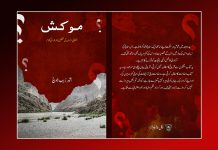Tensions in Balochistan’s Chaman remain high as clashes between protesters and Pakistani security forces continued for a third consecutive day on Friday, resulting in injuries to at least 20 people.
The violence erupted as security forces attempted to disperse demonstrators gathered outside the Deputy Commissioner’s office. Protesters accused the Levies, police, and Frontier Corps of using tear gas and other forceful measures.
Authorities reported the arrest of 45 individuals, accusing them of damaging public and private property and attacking security officials during the protests.
The unrest has led to the closure of business centers, government offices, and the Quetta-Chaman highway. Banks have also been shut for several days due to the ongoing violence.
Participants in the sit-in expressed frustration over the continued detention of their leaders. “More than 48 hours have passed, and the leaders arrested from the protest in Chaman have yet to be presented in any court,” said the protesters.
The demonstrators also noted the absence of the Deputy Commissioner and other district officers, who have not been present in their offices for three days. They criticized both the provincial and central governments for not engaging in dialogue or attempting to negotiate with them.
Protest leaders vowed to continue their sit-in until their demands are met. They insisted that their movement would persist until the previous border-crossing norms are reinstated and all arrested leaders and individuals taken into custody are released.
The protests were initially sparked by the government’s imposition of stringent passport and visa requirements at the border. Previously, Pakistanis and Afghans could cross the border with their respective identity cards. The new regulations, aimed at curbing illegal activities, have left thousands unemployed in Chaman.
The protesters, despite their varied political affiliations are united in demanding a return to the previous border-crossing norms. They emphasize the impact of the new regulations on families and tribes who are divided by the border and rely on frequent crossings for their daily lives.




























